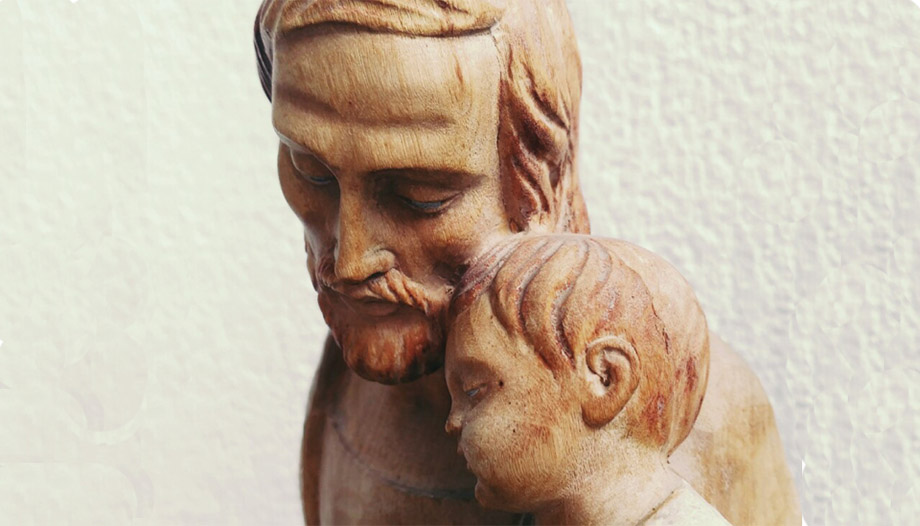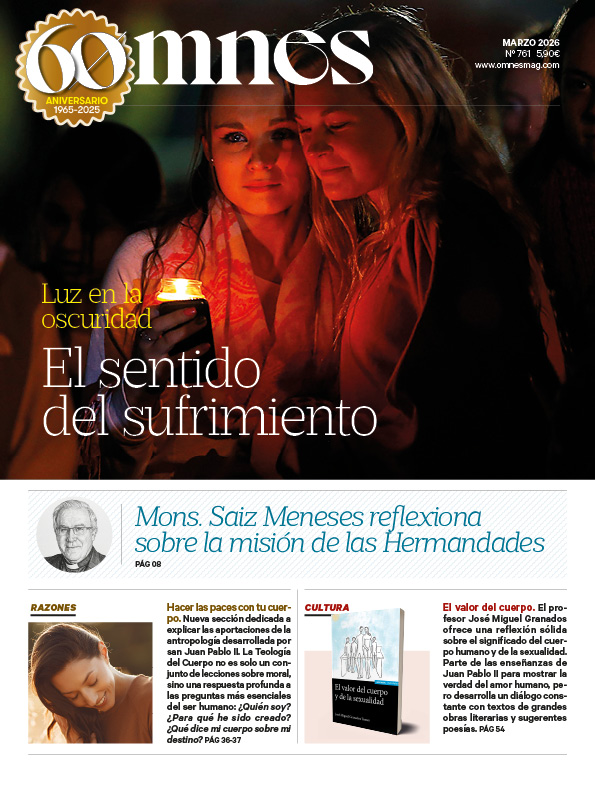Those who love each other say much more by looking at each other than by talking. Pedro Beteta, doctor in Biochemistry and Theology, a priest for almost 40 years, and author of books on the holy Patriarch, advises "reading the Gospel with St. Joseph in mind and heart in the background". This can be seen in his work "Discovering St. Joseph in the Gospel.".
Pedro Beteta dedicated himself to research and university teaching before studying theology and being ordained a priest by St. John Paul II in 1982 in Rome. Now in his book "St. Joseph, model Christian" and in other works, many hours of meditation and study on St. Joseph and decades of pastoral work. He also advises to pay attention to the holy Patriarch during this pandemic, so as not to lose peace.
What would you ask St. Joseph now, in these times of pandemic, when many people are, we are nervous?
Let them look to St. Joseph, let them abandon themselves. St. Joseph never loses his peace, his nerves. As he is obedient, he does what he has to do: he goes to Bethlehem when Providence marks it with the edict of Caesar Augustus and not before; he flees "by night" to Egypt, when the Angel indicates it, without arguing against the lack of human logic, etc.
Why should we turn to St. Joseph?
Because it gives great joy to his Bride, it touches her virginal Son Jesus Christ and, above all, because it manifests to the Most Holy Trinity a sublime gratitude in choosing St. Joseph for the mission of guarding the humanized Word. Let us not forget that after Mary, Joseph is the holiest human person who ever lived.
What led you to title your recent book St. Joseph, Model Christian?
The Christian tends of himself - through the action of the Holy Spirit, through grace - to reach identification with Christ. He is the person who, with the grace of God and the Holy Spirit, is on the way to becoming another Christ. We are all in fieriIn this process, "in this process" in different stages, but the goal is identification with Jesus Christ. And St. Joseph, filled with the Holy Spirit, "a just man"; that is, a holy man, as Sacred Scripture calls him, was always filled with the Holy Spirit, growing in that identification. First Mary and then Joseph reached that maximum degree of identification with Christ. Therefore, who better Christian, image of Christ, than he?
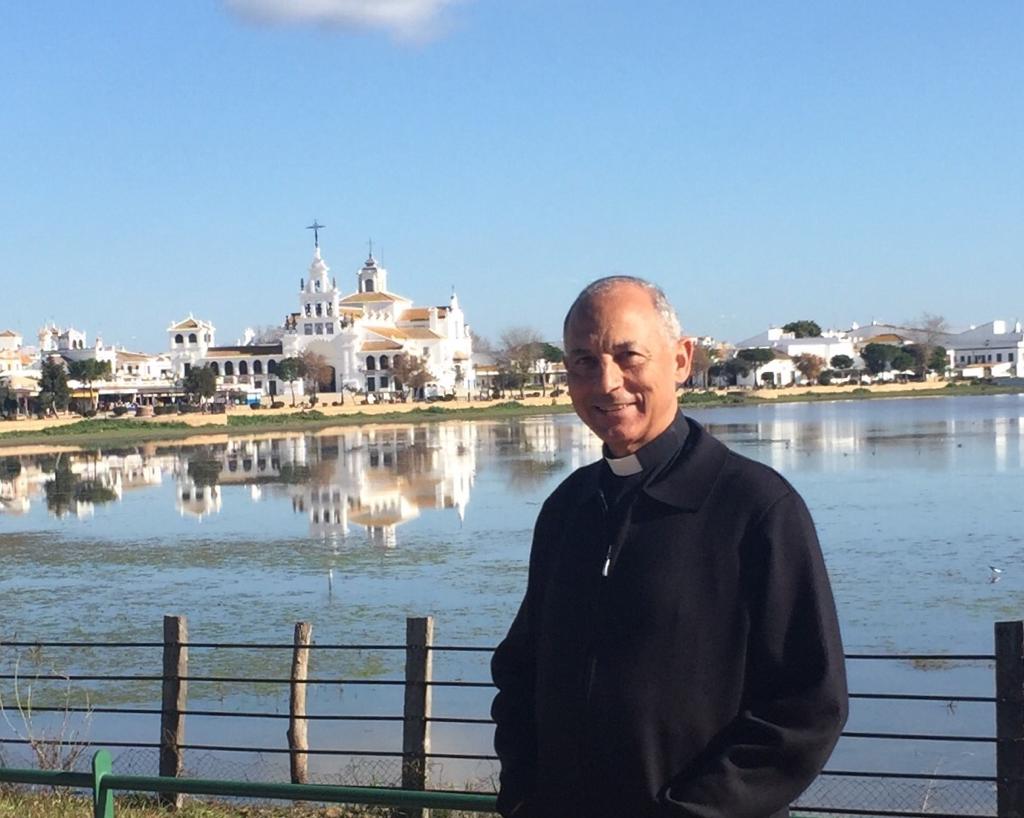
When did you begin to have devotion to St. Joseph?
My father instilled it in me. My father liked to take me to churches in Madrid, where, after greeting the Lord, he would look for St. Joseph. And sometimes he would say to me: This image is not very good. I thought it was artistically, and asked: Why? His answer was of another kind: because he has the Child in his right arm, and the children are held with the left arm, in order to have the right hand free and agile and to be able to do more things in the service of the baby. It is a small thing, but I remember that.
And how did that devotion grow?
Well, I don't know. Besides my parents, who prayed every Wednesday the sorrows and joys of St. Joseph, I got a lot of help from the devotion I saw at St. Anton's School, where I studied all my secondary schooling, run by the Piarists, on Pharmacy Street. Later it was the founder of Opus Dei who taught me to love him and also to say it to the "four winds," as St. Josemaría did and said. Maybe so.
¿A Who else would you mention?
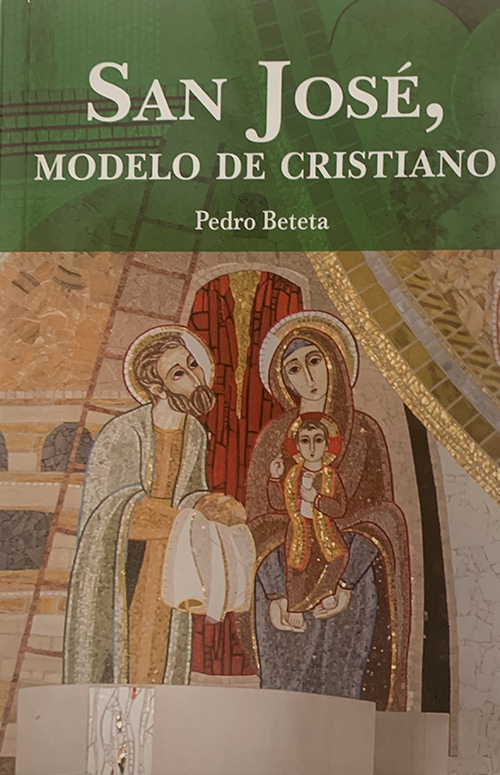
Of course, St. John Paul II. And I do not say this because of the affection I have for him for a thousand reasons, but because he has written the Magna Carta of St. Joseph, unsurpassed until now, and which has magisterially united all the knowledge there was about St. Joseph. The holy Patriarch was as if hidden, concealed, for centuries. Although, as I write in the book, he always had many devotees, it was St. Teresa who popularized his devotion. St. Josemaría, with his theological and intuitive devotion of a soul in love, made enormous contributions that will be evaluated theologically when the time comes. But St. John Paul II, with his catechesis on the theology of the body, opened up such a perfect anthropology at the beginning of his pontificate that he was able to base the depth of his encyclicals on it.
Tell me in two words a key contribution of St. John Paul II?
With the Exhortation Redemptoris custos, On St. Joseph, it has been made clear that the spousal love of Mary and Joseph does not in any way affect the most perfect chastity of both of them. St. Augustine saw this very clearly when he said that St. Joseph is not only given the name of father, but is owed more than any other. And he continues: "What was he like as a father? All the more profoundly fatherly, the more chaste was his fatherhood.". Finally, I am sorry for having taken so long. In this magna carta of St. John Paul II there is a magnificent instrument for researching and advancing in Josephan theology.
What aspect of the Apostolic Letter would you highlight? Patris CordePope Francis?
We could highlight many things, but I underline this expression, so typical of Pope Francis' style, full of freshness "creative courage". Indeed, St. Joseph never flinches in the face of difficulties, but boldly seeks the solution. Therefore, readers of the books I have written on St. Joseph will see how many things are suggested that the Gospel does not say and that are proper to this "daring creativity" of St. Joseph to put into practice the will of God and that which comes to him in dreams.
At what point in your life did you begin to write about St. Joseph? What prompted you to do so?
Jesús Urteaga, who encouraged me to write a booklet on an ignored divine Person: the Holy Spirit. Then he commissioned me to write about another subject, and when it was something known, although by few people, I was able to write about another one. unknown person for so many people: St. Joseph. It could have been the year 84-86. Afterwards, I meditated a lot on the figure of St. Joseph. Above all, I meditated and discovered that the most eloquent thing about St. Joseph is his silences. Generally, those who love each other say many more things looking at each other, silent, than speaking. St. Joseph does this very well. And the Gospel respects it, because it wants those who love St. Joseph and love him, to go deeper and discover things that are not written, as people who love each other discover things in their letters that are not written. When the Gospel is read with St. Joseph in mind and heart in the background"You learn to discover many things between the lines.
In what dodors and goices of St. Joseph, episodes of his life, would you advise young people to pay attention to?
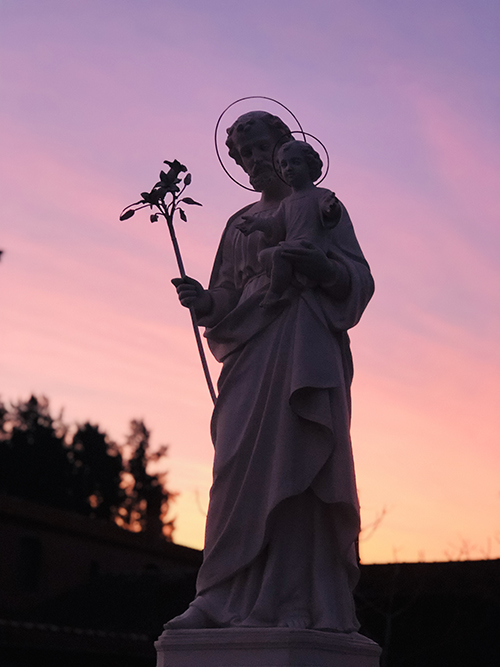
In a very concrete one. When the Child Jesus is lost and found in the temple. This is a pain and joy that puzzles many people. How Jesus, the Son of God, does this "chore" to his virgin parents. But Jesus is not doing a "chore" to his parents. He is telling all of us that we are to leave our parents, our children, and all those whom God has called to follow that will, his vocation!
The bride and groom, the spouses, the elders?
Let them look at the home of Mary and Joseph, which is a home that can be called heaven. Not only because they love each other very much. No one has loved his wife more than Joseph and no woman has loved her husband more than Mary. But because what unites them both is the unique, unreserved love for the Son of God. Love for Jesus Christ is what really unites spouses and it is what should unite engaged couples who wish to form a Christian home. And to the elderly, let them think that St. Joseph is the patron saint of the good death, and to wish to die like him, accompanied by Mary and Jesus, is the best one can hope for, isn't it?
You were ordained a priest by St. John Paul II and have been a priest for almost 40 years. What would you say to young priests and seminarians?
To the young people and seminarians I would tell them to live the Holy Mass very well, every day. That they prepare for it, that they meditate on it a lot. That they live the rubrics very well, without additions or cuts, no matter how small they may be, that without oddities, they embroider it with piety. That does more good than hundreds of books, eloquent homilies, etc. The priest is for the Eucharist. And the Christian people live from the Eucharist. In the Mass we are Christ and living it with piety, delicacy, elegance, naturalness and cleanliness... we are omnipotent. There is nothing more important than the Holy Mass. To celebrate Mass just once is worth dying the day after being ordained.
Any recollection of the Polish Pope?
I have many, even a book with anecdotes. If you look at some photographs, when I was talking to someone, I was only with that person, there was no one else. I have a photo with John Paul II in which he is listening to a little thing I was telling him and people ask me: what were you telling him that he is so attentive? The most important person for him is the one he was with.


